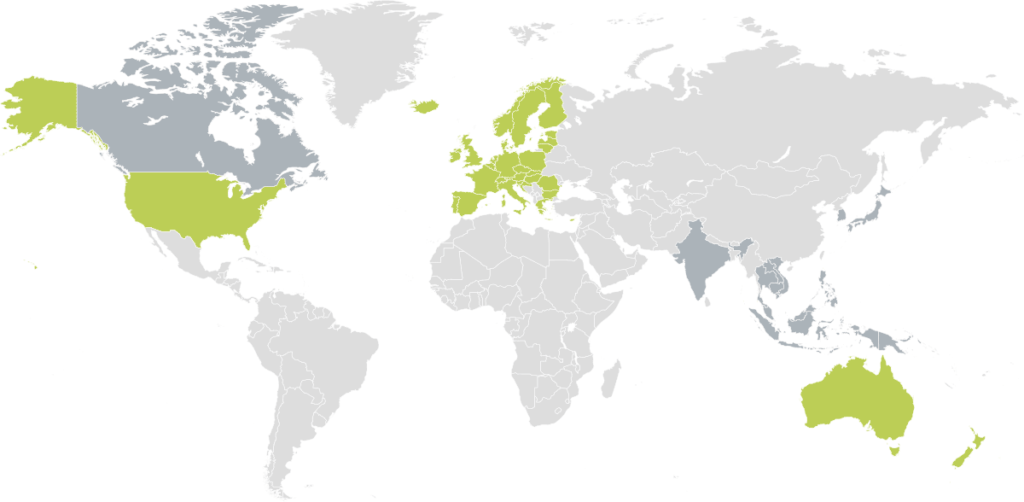A certified pathway for organisations to transition to sustainable energy
A GLOBAL PARTNERSHIP
Bringing affordable, sustainable energy to life
Certification Purpose
A swift and robust global effort is urgently needed to accelerate the decarbonisation of the world’s electricity systems to combat climate change and ensure universal access to clean and affordable energy, in line with the United Nations’ Sustainable Development Goal 7 (SDG7). To limit global warming to below 1.5°C, global greenhouse gas emissions must be reduced by 43% by 2030, relative to 2019 levels (IPCC, 2023).
While the Paris Agreement’s 1.5°C target remains critical, current policies and measures place the world on a trajectory towards 2.4°C of warming. Although achieving the 1.5°C target is still possible, the window of opportunity is rapidly closing.
Energy accounts for approximately 75% of all global carbon emissions, making the decarbonisation of energy systems the cornerstone of a carbon-free economy (IEA, 2023). However, transitioning to a carbon-free energy system is a complex process, requiring a fundamental transformation in how energy is generated, transmitted, managed, and consumed.
This transition is further complicated by the simultaneous increase in renewable energy adoption and the gradual phase-out of fossil fuels, creating supply gaps and potential grid instability. Many organizations find this landscape difficult to navigate, as they face a wide range of solutions with overlapping measurement frameworks and standards, often leading to confusion. Energy users are under growing pressure from stakeholders to meet sustainability targets, but they struggle to identify valid solutions in an increasingly complex market.
Introducing the Sustainable Energy Commitment:
A global certification toward sustainable energy

- Active regions
- Expansion regions
THE SUSTAINABLE ENERGY COMMITMENT CERTIFICATION
The Sustainable Energy Commitment (SEC) is a globally recognised certification, designed to help organisations manage energy better, reduce costs and disclose transitional climate risk in line with evolving international and domestic regulatory requirements
The SEC Certification is underpinned by a standardised energy management framework and scoring system that rewards genuine progress rather than unverified claims. It enables organizations to create a tailored Energy Transition Plan, while efficiently tracking and validating progress. The certification ensures a practical and realistic energy transition by integrating data and delivering real actions through a three-phase journey, all at a pace suited to the organization.
By making a Sustainable Energy Commitment, organisations are not only supporting their own energy journey to lower costs and emissions, but also the broader global energy transition. Scoring is perfectly aggregated across supply chains, industries and regions so the greater energy transition can be importantly mapped and tracked.
The practical methodology is inclusive of an organisation, allowing organisations to start with a baseline score as low as 0 and map out a customised energy transition plan to meet a SEC score of 80.
The Energy Transition Framework consists of 19 energy specific Key Performance Indicators which have been established to guide organisations on the right areas to focus throughout their energy transition. Each KPI is collectively contributing towards the organisation’s total SEC score.
To discuss certification, book a meeting today.